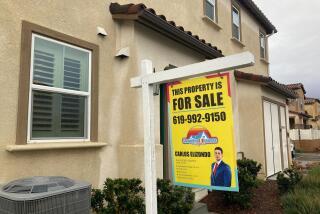N.J. Financing of Schools Held Unfair to Poor
- Share via
TRENTON, N. J. — New Jersey’s method of financing its public schools unconstitutionally favors wealthy suburban districts over poor urban schools, an administrative law judge ruled Thursday.
Judge Steven Lefelt, in an opinion that could lead to changes in the state’s tax and educational systems, ruled that school funding procedures remain unfair to poor communities despite imposition of a state income tax and other changes made after a 1973 state Supreme Court ruling on the same issue.
Saying there are vast disparities in programs and expenditures per student in suburban and urban districts within the state, Lefelt recommended a series of legislative changes he said could bring the funding system into compliance with the state Constitution.
Urges Uniform Property Tax
Leading the list of recommendations was a uniform property tax rate for all school districts to ensure a minimum level of funding per pupil. Shortfalls in the per-pupil minimum would be made up through millions of dollars in new state aid not funded through the property tax.
Neither the uniform tax rate nor the amount of new state funding was specified in the opinion.
The ruling and recommendations, which are expected to be appealed to the state Supreme Court, came in a case brought by the Education Law Center, based in Newark, on behalf of 20 mostly black youths from East Orange, Irvington, Camden and Jersey City.
The plaintiffs argued that inequities continued to exist and that the gap between urban and suburban districts has widened despite the enactment of the income tax in 1976.
Sought to Weaken Link
The tax was created to generate a new source of funding that would sever or at least weaken the link between local property values and education spending.
More to Read
Sign up for Essential California
The most important California stories and recommendations in your inbox every morning.
You may occasionally receive promotional content from the Los Angeles Times.










